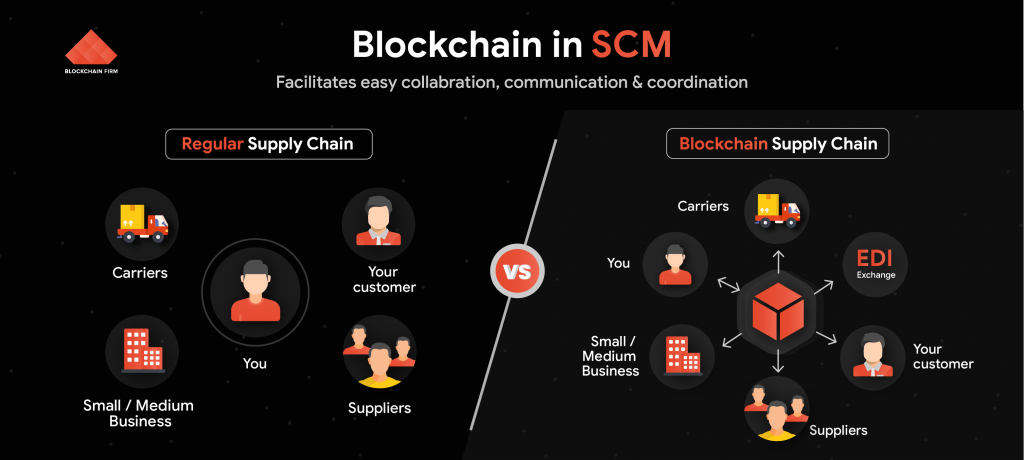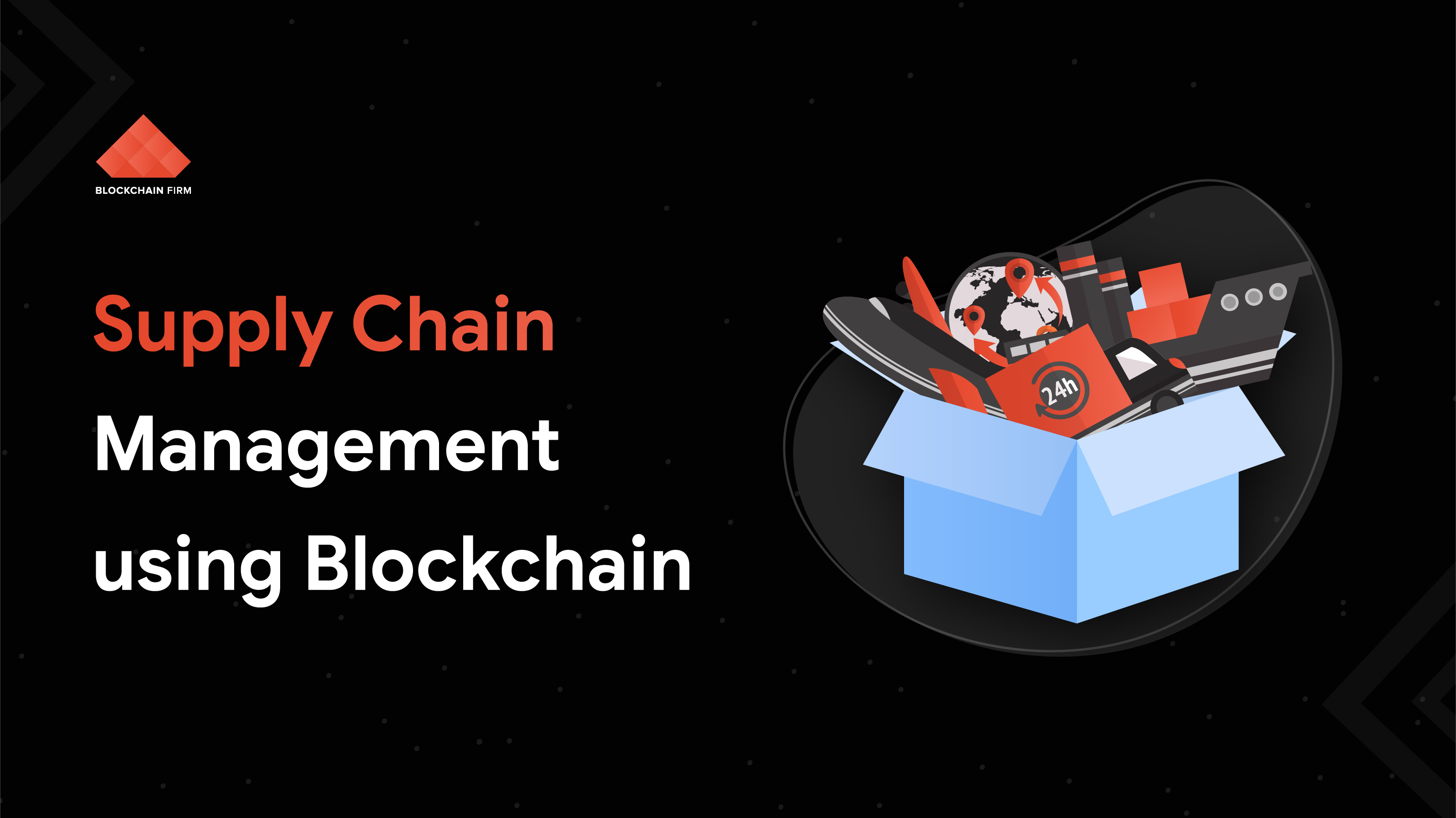Implementing Blockchain in Supply Chain
Blockchain and crypto space are always booming its potential to drag in consumers and the world into it. The world of invisible blockchain holds a bunch of professional marketers to outreach its potential with exaggeration. In real-time, the technologists and the sectors are struggling to explore the possibility of blockchain, and upcoming risks for implementation. How far the supply chain could hold blockchain technology for its current problems is a big query in the minds of every product-based industry!
In this blog post, let\’s look into the insights of blockchain developers from Blockchain Firm, who are into this distributed ledger space for more than half a decade! Let\’s begin with the popular real-time projects happening in the supply chain sector with blockchain technology!
Happenings around the supply chain world with blockchain tech!

Giant sectors out there in the supply chain world are experimenting pilot projects with blockchain technology. Some of the exciting and innovative projects are on the verge of implementation. Here\’s the sneak-peak news on blockchain in supply chain projects!
- The international supply chain holds the involvement of a bunch of companies in their import and export processes. Eximchain indulges in the project of providing credit scores for the companies to avoid loss of products and improve the quality of the supply chain.
- Quality standard certifications for physical products must be digitalized in this era. Provenance is concerned about digital certification for the physical products out there with blockchain tech.
- The most valuable and precious stone of all time is diamond, and it requires traceability with immutable technology. Here comes Everledger with the solution of digital thumbprint by leveraging the blockchain technology.
- Food scams are occurring in multiple ways and can affect generations with unknown diseases. Arc-net has crafted its food track application by tieing up with Ireland Craft Beers on breweries, which may be scaled up for other food products shortly.
- Giving your hard-earned money for charities needs a soulful heart. But, when it reaches fraudsters, it may hinder you from rendering helping hands in the future. Hence, BitGive provides the donors to trace their donated money with blockchain technology, which may promote charities.
Sure, these projects may pop-up soon in real-life. Now, let\’s see the areas at which supply chain could be enhanced, according to blockchain experts assurance are!
Even though it\’s hard, these are assured gains!
Implementing blockchain technology in supply chain is not as easy as you expect. It requires proper planning and, most importantly, funding. As blockchain technology is budding now in all the sectors, people are stepping forward to invest in tech projects. But, when it comes to the supply chain, there are hindrances too.
Despite all the difficulties faced, the supply chain enhanced with blockchain can intensify in the following areas!
Immense traceability with transparency:
Blockchain is chronological and immutable. By implementing the solutions of this technology in the supply chain industry, product scams and damages can be avoided to a greater extent.
Automated and digitalized processes:
Even today, shipping industries rely on papers and document processing for a supply chain of products. Instead, blockchain-based supply chain software can help officials and employees inspect, process the transfer of the product in a decentralized way.
Automated standards certifications:
By enforcing smart contracts in the supply chain world, products can be customized with regulatory quality standards. Thereby reducing the costs of inspection and quality scams in food, medical, and other consumer products.
Blockchain is the distributed ledger of data transactions that are stored in chronological order. The data, once added to the ledger, can\’t be modified at any cost; instead, changes can be added as a new block by connecting to the related data block. Every transaction in the blockchain ledger is verified and approved by community people so-called miners. Now, what about these approvals in the supply chain industry is the next query of blockchain peers.
Approvals and limitations of traversing in the supply chain industry!
The great works of miners maintains blockchain ledger as a tamper-proof, stable, and trusted source of data. But, who must be authorized as the miner nodes of the supply chain network? In the case of cryptocurrencies, the entire blockchain ledger is permissionless, and hence the miner nodes can approve the transaction with ease.
When it comes to the supply chain, a permissionless blockchain network is not suitable and impossible. Holding the enormous data of the supply chain in every node is highly impossible and requires supercomputers for this purpose. Another disadvantage is that in the case of the supply chain, transactions or resources can never be limited. In cryptocurrencies, the blockchain network has a limited volume, and hence the data copies are quite possible and hassle-free when compared to the supply chain sector.
Without knowing the quality standards of the products, it\’s impossible to verify the supply chain. Hence, the inspection, safety officers must only be provided with access to test and approve the products in the supply chain. In such a way, there are many barriers and limitations in implementing blockchain solutions for the supply chain sector!
Final Thoughts!
The future implementation of blockchain is undeniable in the supply chain industry. But, the possibility of applying the solutions of this technology in real-time has some limitations. So, the professionals and researchers of both sectors must have a clear idea about execution and then dive in!
As the money, time, assets, and resources involved are higher in pace, if you\’re a supply chain professional, let\’s have a talk on the future of blockchain in the supply chain sector!
